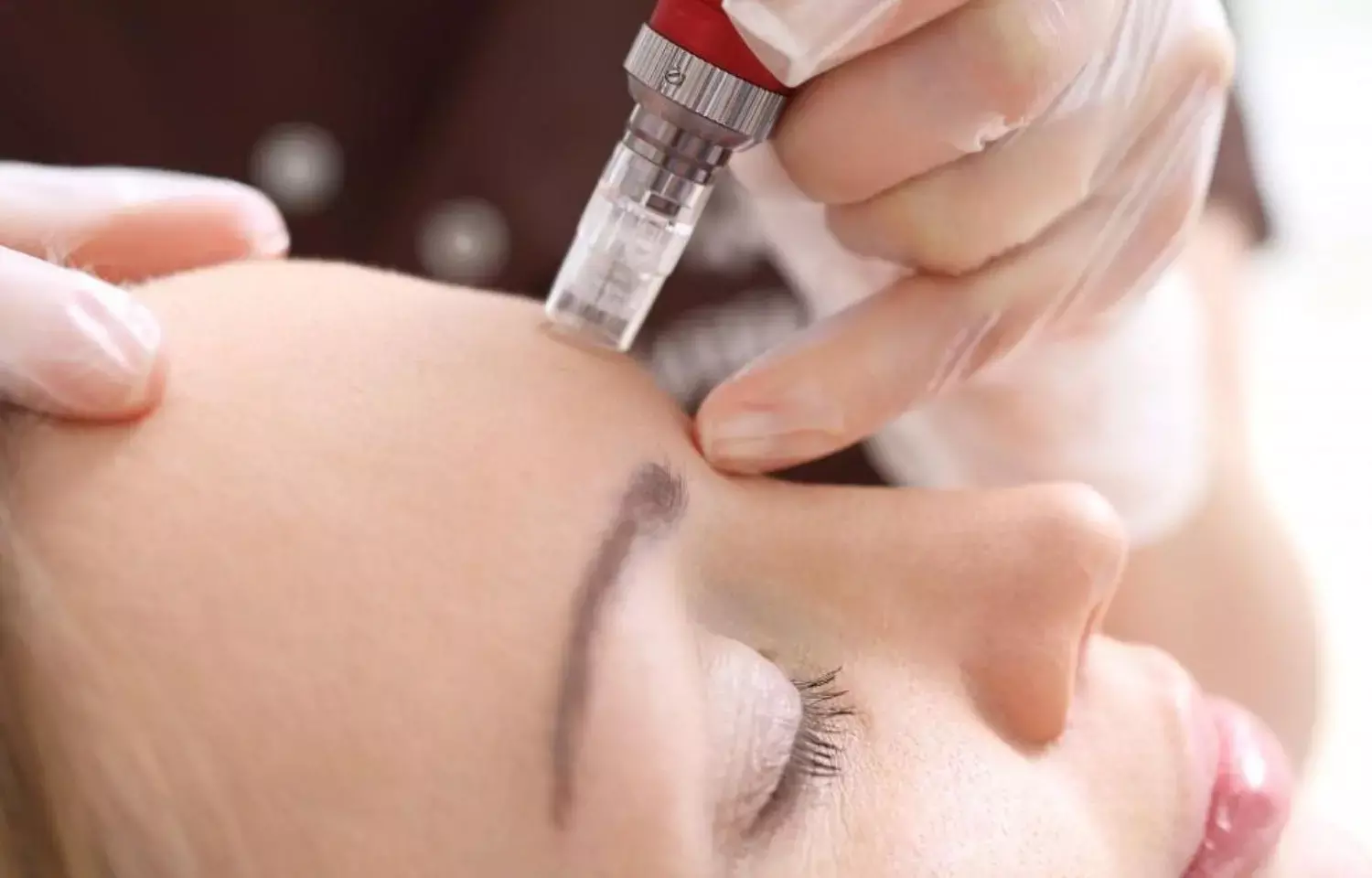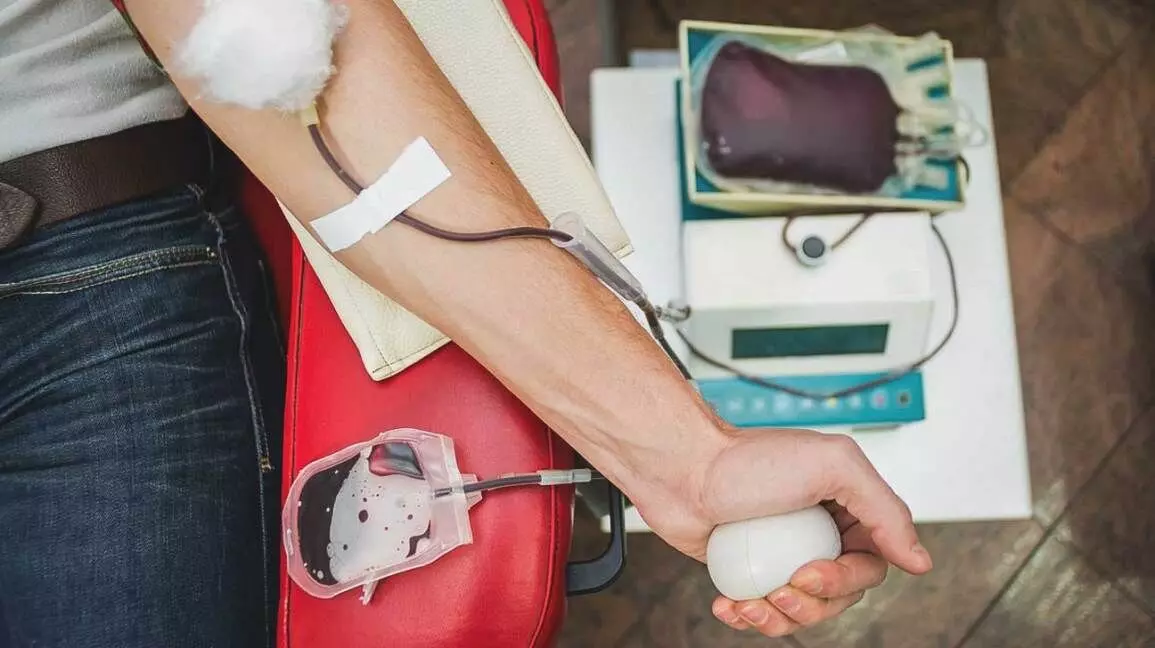- Home
- Medical news & Guidelines
- Anesthesiology
- Cardiology and CTVS
- Critical Care
- Dentistry
- Dermatology
- Diabetes and Endocrinology
- ENT
- Gastroenterology
- Medicine
- Nephrology
- Neurology
- Obstretics-Gynaecology
- Oncology
- Ophthalmology
- Orthopaedics
- Pediatrics-Neonatology
- Psychiatry
- Pulmonology
- Radiology
- Surgery
- Urology
- Laboratory Medicine
- Diet
- Nursing
- Paramedical
- Physiotherapy
- Health news
- Fact Check
- Bone Health Fact Check
- Brain Health Fact Check
- Cancer Related Fact Check
- Child Care Fact Check
- Dental and oral health fact check
- Diabetes and metabolic health fact check
- Diet and Nutrition Fact Check
- Eye and ENT Care Fact Check
- Fitness fact check
- Gut health fact check
- Heart health fact check
- Kidney health fact check
- Medical education fact check
- Men's health fact check
- Respiratory fact check
- Skin and hair care fact check
- Vaccine and Immunization fact check
- Women's health fact check
- AYUSH
- State News
- Andaman and Nicobar Islands
- Andhra Pradesh
- Arunachal Pradesh
- Assam
- Bihar
- Chandigarh
- Chattisgarh
- Dadra and Nagar Haveli
- Daman and Diu
- Delhi
- Goa
- Gujarat
- Haryana
- Himachal Pradesh
- Jammu & Kashmir
- Jharkhand
- Karnataka
- Kerala
- Ladakh
- Lakshadweep
- Madhya Pradesh
- Maharashtra
- Manipur
- Meghalaya
- Mizoram
- Nagaland
- Odisha
- Puducherry
- Punjab
- Rajasthan
- Sikkim
- Tamil Nadu
- Telangana
- Tripura
- Uttar Pradesh
- Uttrakhand
- West Bengal
- Medical Education
- Industry
RF microneedling combined with fractional CO2 laser boon for Acne scarring patients

New research found that a combination of radiofrequency (RF) microneedling with fractional ablative carbon dioxide (CO2) laser for acne scarring is safe and effective with visible results even by undergoing a single treatment. The study was published in the "Journal of Cosmetic Dermatology."
Acne scarring can cause a huge psychological burden on the patient. Combination radiofrequency (RF) microneedling with fractional ablative carbon dioxide (CO2) laser is a new approach for acne scar treatment. So, researchers from London conducted a systematic review of the literature on the safety and effectiveness of this treatment for acne scarring and also assessed the safety and effectiveness in a 2-center case series.
For the systematic review, the researchers collected the articles that assessed the safety and effectiveness of a combination RF micro-needling and fractional CO2 laser for acne scarring and assessed the quality using the Downs and Black checklist. For the case series, patient records who underwent a single treatment with RF micro-needling and fractional CO2 laser for acne scarring from two clinics were reviewed. One was from London, U.K., and the other from Washington D.C., U.S.A. Outcome assessment was via the Scar Global Assessment (SGA) scale.
Results:
Systematic review:
- 3 articles were included and reported improvements in acne scar severity.
- Erythema, edema, pain, vesicle formation, erosion, petechiae, desquamation, post-inflammatory hyperpigmentation (PIH), and acne flare were the adverse effects.
- Quality scores ranged from 14-15 (maximum of 21).
Case series:
- 26 patients were included.
- Mean SGA Score was 3.0 at baseline and 1.3 at follow-up.
- All patients had an improved SGA score.
- Adverse effects included erythema, pain, edema, skin crusting, PIH, and an acne flare.
- All patients resumed normal activities within 7-days of treatment.
Thus, the researchers concluded that for patients with acne scarring Combination of RF micro-needling and fractional CO2 laser appears a safe and effective treatment and even a single treatment can result in noticeable improvements in acne scar severity within a short recovery time.
For the full article, click here: https://doi.org/10.1111/jocd.15276
Mandavia R, Cariati M, Shahidi S, Spencer C, Somenek M, Lapa T. Combination Radiofrequency Microneedling and Carbon Dioxide Laser for acne scarring: A systematic review and retrospective case series across two centres [published online ahead of print, 2022 Jul 27]. J Cosmet Dermatol. 2022;10.1111/jocd.15276.
BDS, MDS
Dr.Niharika Harsha B (BDS,MDS) completed her BDS from Govt Dental College, Hyderabad and MDS from Dr.NTR University of health sciences(Now Kaloji Rao University). She has 4 years of private dental practice and worked for 2 years as Consultant Oral Radiologist at a Dental Imaging Centre in Hyderabad. She worked as Research Assistant and scientific writer in the development of Oral Anti cancer screening device with her seniors. She has a deep intriguing wish in writing highly engaging, captivating and informative medical content for a wider audience. She can be contacted at editorial@medicaldialogues.in.
Dr Kamal Kant Kohli-MBBS, DTCD- a chest specialist with more than 30 years of practice and a flair for writing clinical articles, Dr Kamal Kant Kohli joined Medical Dialogues as a Chief Editor of Medical News. Besides writing articles, as an editor, he proofreads and verifies all the medical content published on Medical Dialogues including those coming from journals, studies,medical conferences,guidelines etc. Email: drkohli@medicaldialogues.in. Contact no. 011-43720751




